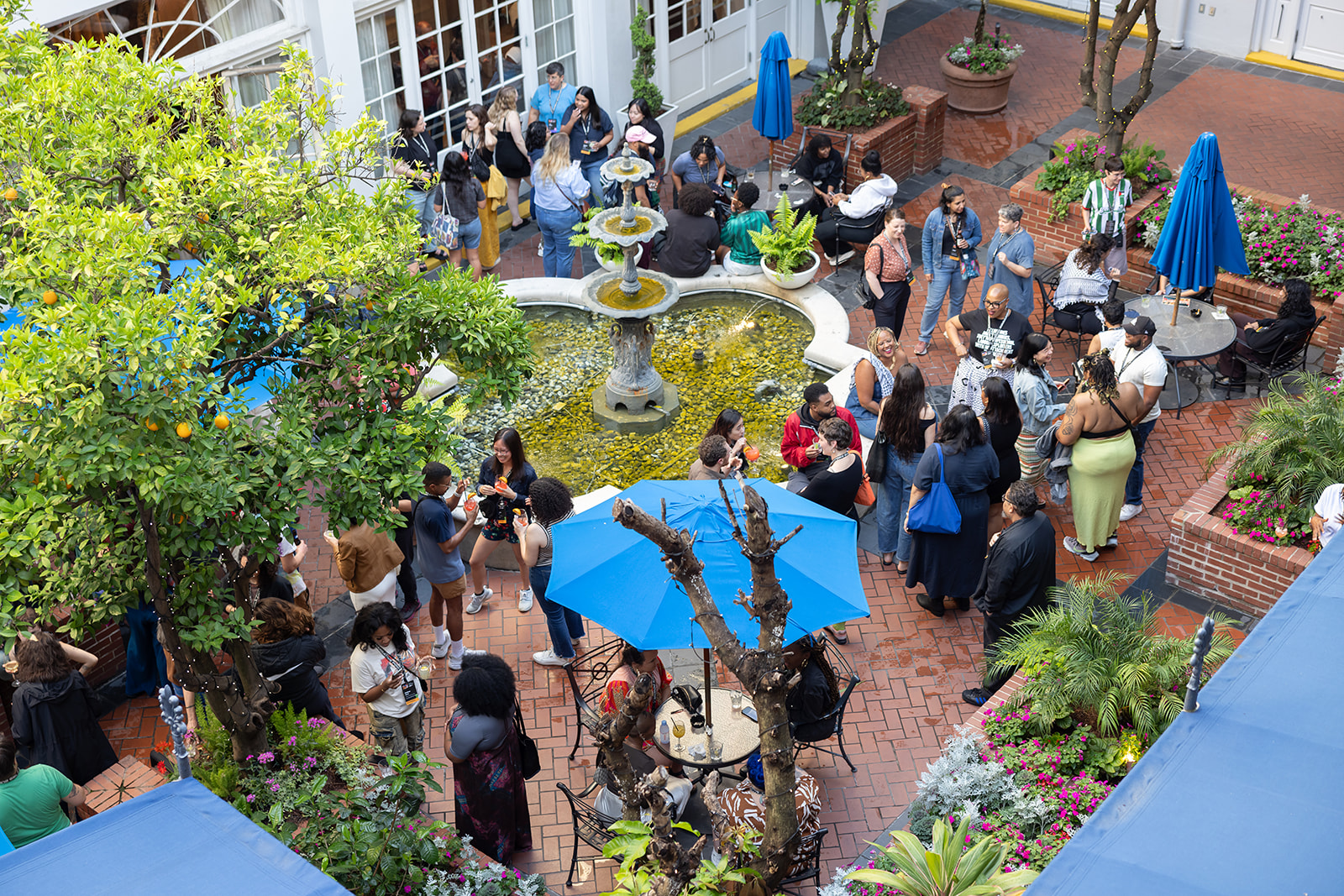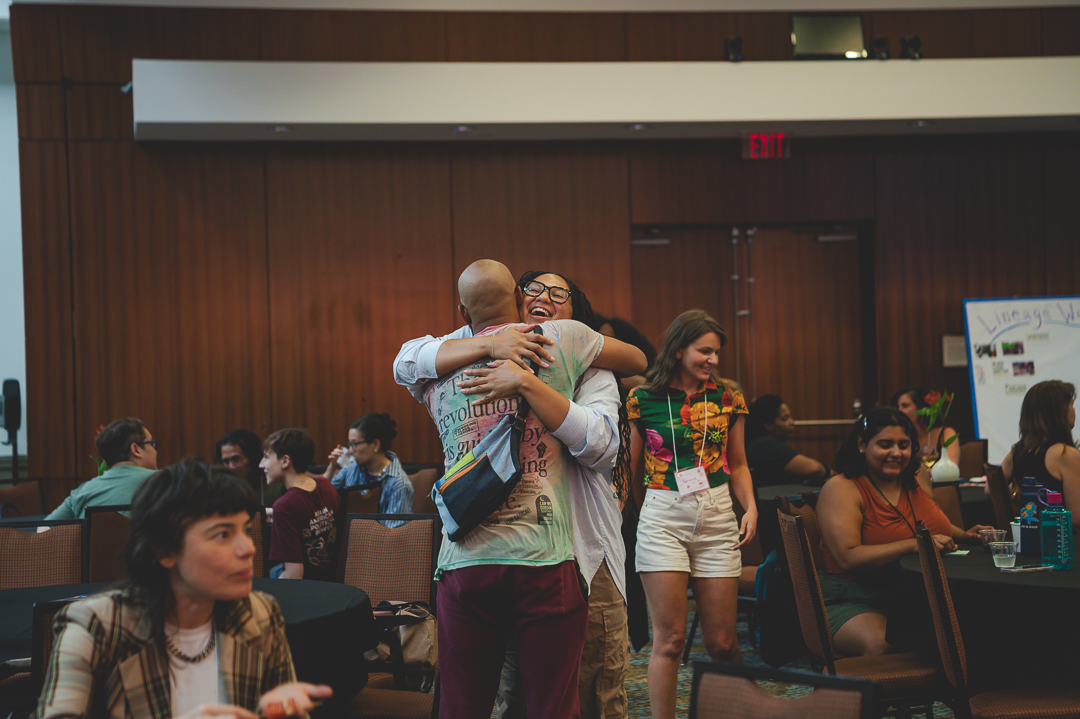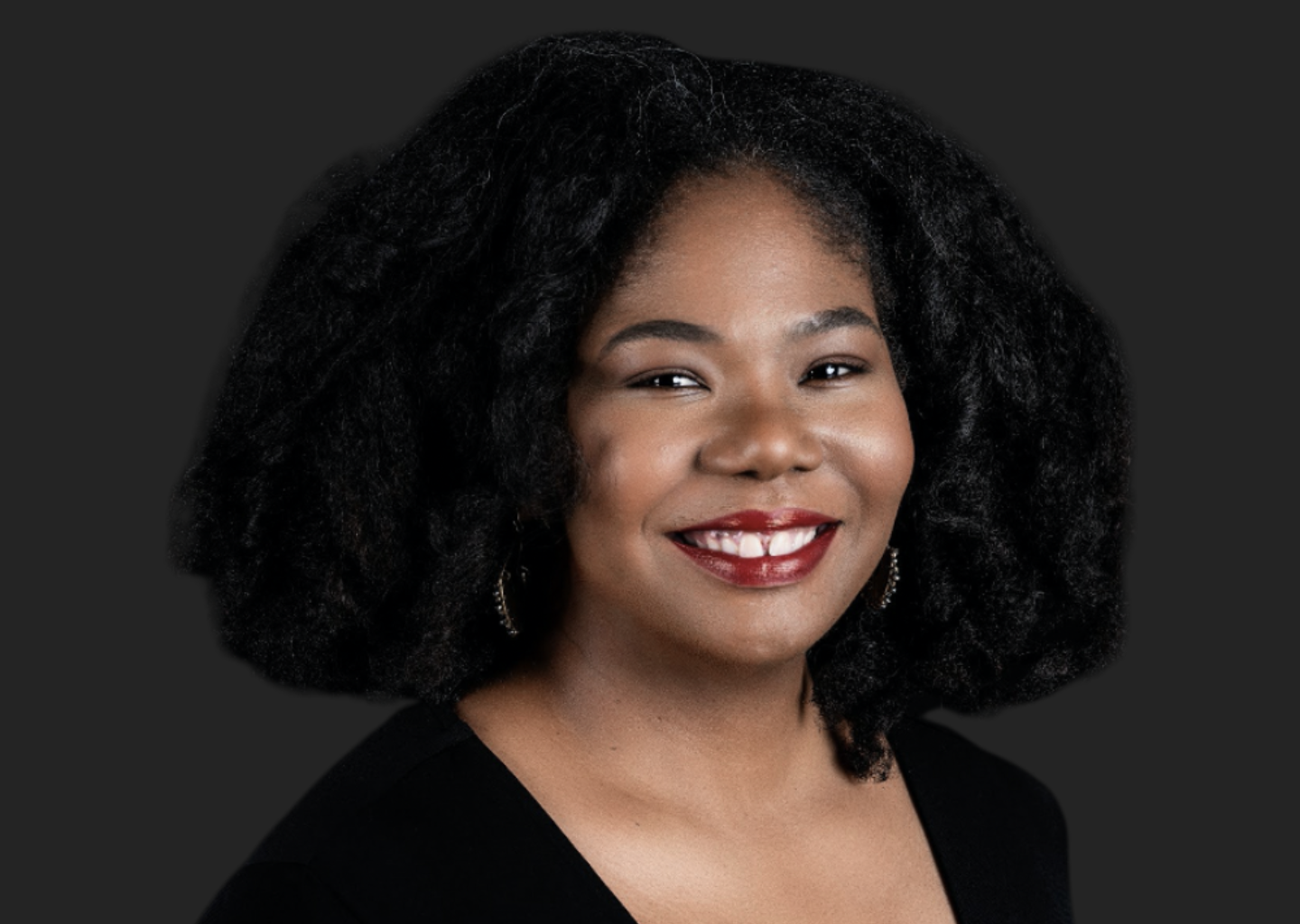“The saying goes ‘if you're not at the table, you're on the menu,” says Damon Motz-Storey. “So it is important for us to organize the Portland community towards collective action to obtain self determination, wellness, justice and prosperity.”
Jenny Lee and Damon Motz-Storey were in a six-month fellowship run by ReFrame in partnership with the Northwest Health Foundation. We took a few minutes to check-in on how they are doing.
Jenny and Damon work for Coalition of Communities of Color (CCC)- an organization in Portland, Oregon addressing socio-economic disparities, institutional racism and inequality of services experienced by families, children and communities. Jenny is the Deputy Director and Damon is the Communications and Development Manager.
What is one piece of media that has brought you joy and hope recently?
Jenny: In Portland we organize to create safety for our community by bringing an end to police violence, creating homes for people who need them, and providing support for families in need. Our opposition led an advocacy campaign that pushed for increased law enforcement, the criminalization of homelessness, and the undermining of services like affordable housing and real community safety. Their campaign had a tremendous impact on public opinion. Angela Uherbelau, a community leader who is a woman of color, drafted a letter challenging the opposition's campaign in support for real substantial change. It ended up with hundreds of signatories and was eventually published as an op ed piece. The letter got a lot of attention. She used the media to bring in organizations, elected officials, and expand support for our work. I was filled with joy to see someone from the community take the lead, commit to the vision and give voice to it.
Damon: Candace Avalos, the Executive Director of Verde and a fellow participant in the NWHF fellowship, has a regular column in the Oregonian. She recently used her platform to rebut the criminalization of homelessness. She put out an alternative vision of what it would be like if we actually gave people what they need and want. She closed it with a reference to a biblical story of Jesus dividing loaves and fish to feed the masses and how it wasn't necessarily a miracle. Jesus was able to take all of the resources that were present communally, and distribute it to make sure that everyone had what they needed and everyone was fed. It was brilliant, joyful and hopeful. It spoke to a common set of values that a lot of people have. It leveraged a very popular story to connect with people. It was awesome.
What is bringing you hope in the work that you do? Where do you look for inspiration and why?
Damon: I find hope in everyday people who take action to meet the crisis we are facing in society. I feel inspired by folks who are creative and resourceful and ask themselves questions like, “what can I do to move the needle?” During the September 2020 wildfires in Oregon, the air was some of the unhealthiest in the world. My housemates saw that people on the streets were protesting in dangerous weather conditions. So they played their part by cooking for protestors at the Black Lives Matter rallies and they have kept at it and have continued to do home cooked meal distributions ever since. It’s inspiring to see folks who did not know each other beyond marching together in the streets coming together around common values and care for one another.
Jenny: Seeing folks make time and space to collectively work on advocacy issues is inspiring. Despite challenges around capacity and questions about who should be leading, I see people stepping up to directly serve the community. It’s been great to see that shift through changes in the movement ecosystem and also through crisis moments. It gives me hope, because we're building the field and we'll have a lot more resources to draw on with our partners.
What are the narratives and big stories that your organization is advancing? Why and How?
Jenny: We are advancing a narrative about self-determination and how BIPOC communities should play leading roles. There is a common held idea that Oregon is the whitest state where communities of color don't live so visibility and representation in BIPOC communities has been critical. This narrative about who is an Oregonian undergirds a history of exclusion and discrimination against BIPOC people by those in power. We've been working to elevate voices and center racial justice in policy making, political power, research, and the environmental movement.
We've started looking into public opinion research as a tool to understand where our community is because we know it's not only about meeting folks where they are but we need to also understand concerns and beliefs so that we can work to shift them. We'll be launching into the application of this research tool for housing and an even bigger project coming down the pike around building out that narrative - it is expensive but necessary work. These types of tools, data, and strategic information cannot just live in the hands of the dominant culture, our communities and our movements need them in order to lead. That’s just one component but we really need it to keep us out of reactive positions.
Damon: We are telling the story that BIPOC communities are leading on every single issue that there is, and there's valuable and essential perspectives and expertise here that need to be at the table. We’ve made some big gains, and we have shifted the needle as we moved this story out into the world, and we still have a ways to go. The uniqueness of being a cross cultural coalition of culturally specific groups and the solidarity we have is what's so powerful. We are working together for the common good of everybody who's impacted by white supremacy in this state, but we aren't just defensive, we are proactively working for and enacting self-determination.
What are the narratives at play in society that make you worry the most and who is doing a good job at combating them?
Damon: What immediately pops into my mind is the work that Street Roots is doing in Portland. One of the things we are coming up hard against is the growing indifference to unhoused people by many Portlanders who just don't want to see homelessness, but aren't mobilized to fix it. That is the extent of their concern around the homelessness crisis, they just don't want to see it. That's a dangerous and disturbing reality that we're seeing pick up a lot of traction. Street Roots is doing an incredible job of letting us hear firsthand from people who are experiencing homelessness about what it is they want, their needs, and the uniquenesses of what it's like to live outside in Portland. That does a lot of good for our community. Street Roots elevates the voices of the people in the community who are continually talked about by every politician and group and provides a platform for them to speak in their own voice.
Jenny: We're in a position where the pendulum has swung. The ongoing impact of the pandemic and economic crises is exasperating systemic oppression. We have seen an increase in homicides and it deeply impacts Black, Latinx, and Pacific Islander communities in the region. The opposition is leveraging the increase in violence to revive harmful narratives about police and safety. We had a lot of wins that we were able to make for community based solutions to end violence through intervention and prevention strategies, rather than increased policing and penalties, which have come under serious fire. This push from the other side feels acutely dangerous.
What do other community led organizations need to understand or do better when it comes to narrative and comms work?
Jenny: Understanding your base, your persuadables, and saying the right thing to the right people at the right time. We often communicate toward our base but there are narratives we're not able to push as far because we have to work a lot with dominant culture, entities or institutions. We’re not always able to be as direct as we want to be, but it’s all about how we talk about “the thing.” What issues do we raise up and then how do we bring folks to our values and policy position? So it's really that distinction that folks, especially those who haven't done electoral work, really need to shift.
Damon: I see communications and narrative as an afterthought for some organizations. We should be rethinking it and have them embedded in the policy strategy work. We have to think about what we are actually doing to move the needle - what we are actually doing to win. We should be intentional in the messaging and understand narrative strategy has to be embedded in it. It’s not just about what we're doing, but also how we're going to talk about it and thinking about that from the very first couple of steps of approaching an issue.
And again, just coming back to resources and capacity, I think there are too many folks that are having to do the work of two or three in one person's work day. When that happens, it's hard to have the breathing space for the kind of creativity and brainstorming work that needs to happen in order to come up with some really great messaging strategies.
Final Thoughts on the NWHF Fellowship?
Damon: There are a ton of things that I loved about the NWHF fellowship, but more than anything, getting to know people who we get to work with in our region at other organizations on a deeper level has been wonderful. About six months ago, Jenny and I were talking about what dreams and hopes we had for communications within CCC. We discussed a desire to build up more infrastructure and resources to be able to offer more support to our members. One major takeaway from this whole experience for me is feeling like I am much better prepared to offer that kind of support and those kinds of resources. I'm excited to take this and turn it into some communications planning work and actually get things done.
Jenny: I think hearing from folks who have done work in other states and being able to bring those examples into our space is inspiring. We have many experiences and we are able to learn so much from other communities, which has been great. I also feel like the coaching has been really important as a support place, especially during difficult times. I now feel like I'm able to better reach out to folks, even if I haven't necessarily connected with them all that much. It has just been great to establish that kind of network.







































.jpeg)


.png)

%20(1).png)




























